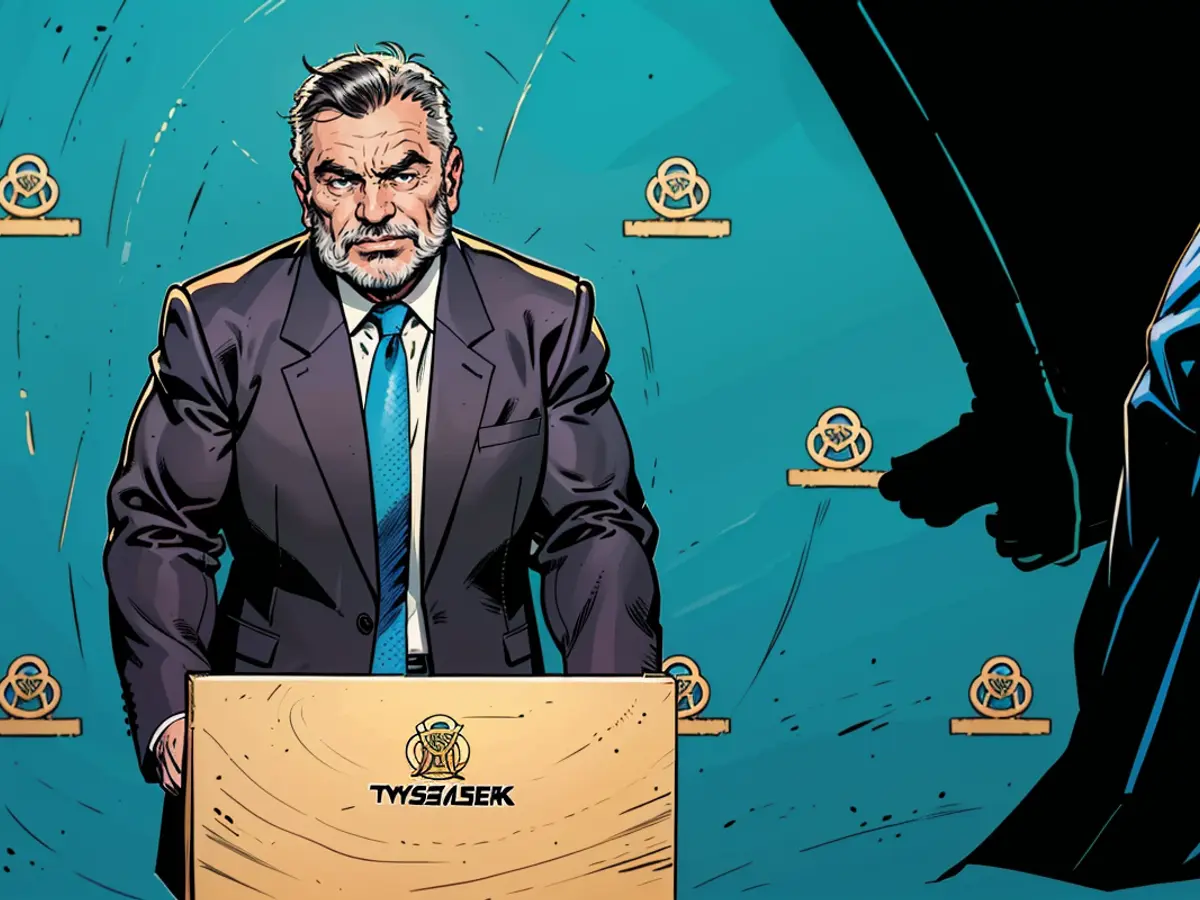The CEO of Thyssenkrupp relinquishes his position in the steel sector's leadership.
In a recent turn of events, three board members from Thyssenkrupp's steel division have stepped down, prompting strong criticism from the parent company's supervisory board chairman, Oliver Blank. Blank accused the departing managers of failing to tackle the structural issues and economic struggles of the steel business, which has been a problem not just lately, but for years.
Blank, who is also the president of the Federation of German Industries, advocates for the restructuring and independence of the loss-making steel division. A disagreement over the financial resources needed for this transformation has been a point of contention between the corporate management and the steel management for weeks.
On Thursday, it was announced that the steel CEO, Bernhard Osburg, along with the production manager and personnel manager, had left the company immediately. Following this, four members of the steel supervisory board also announced their resignations, including former chairman Sigmar Gabriel who accused Thyssenkrupp's CEO, Miguel López, of engaging in a smear campaign against the steel board. Gabriel also implied that Blank had been inactive.
In his statement, Blank mentioned that the steel management had consistently failed to meet its own targets, including this financial year. Agreed restructuring programs have fallen short of the effects promised by the steel management. "Thyssenkrupp Steel continues to consume liquidity at a rate detrimental to its future, other businesses, and the company's owners, and has not regained control of the situation under its current leadership," Blank said.
Replacement of vacant positions to occur swiftly
Three board members resigned from the company under mutual agreement under these circumstances. Following the resignations, the remaining board members, Dennis Grimm (Technology) and Philipp Conze (Finance), will continue to manage the steel segment's operations. "The process of filling vacant positions will be carried out promptly in an ordered manner," Thyssenkrupp announced.
In the interim, the vacant departments will be divided. Grimm will take on the role of the board's spokesperson. The company will make decisions on the replacement of vacant supervisory board seats and the successor to Sigmar Gabriel as chair of the supervisory board shortly.
Thyssenkrupp's steel division has been affected by the economy's weakness and cheap imports for a long time. It has been necessary to reduce capacities and consequently, the workforce. The impact of these board and supervisory board changes on the future of the employees remains unclear. The supervisory board had intended to draw up a plan for financing the next two years, but this didn't materialize. Thyssenkrupp's steel division is Germany's largest steel producer, employing 27,000 people, with 13,000 of them working in Duisburg. The works council is concerned that the restructuring could result in the "halving of the plant" and the loss of thousands of jobs.
The supervisory board chairman, Oliver Blank, strongly criticized the departing managers for their inability to address the steel division's structural issues and economic struggles, which have been persistent challenges for years. After the resignations, the remaining board members, Dennis Grimm and Philipp Conze, will manage the steel segment's operations, and the company will swiftly fill vacant positions.








